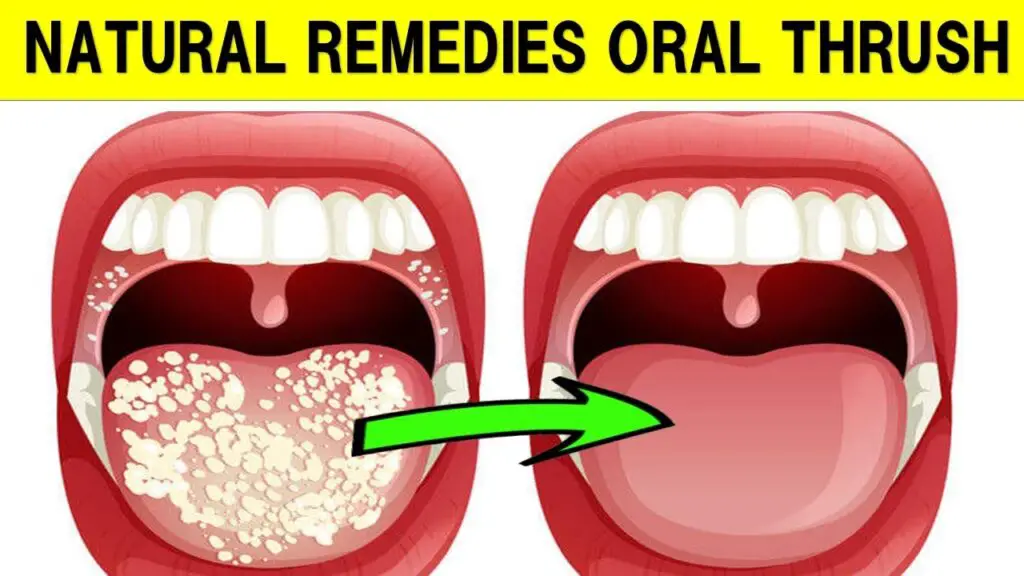Oral thrush can be unsightly and can cause discomfort. Thrush symptoms may prevent you from enjoying a meal out, spending time with a loved one, and even tasting food. While oral thrush is more common for people with weakened immune systems or prior health conditions that leave them vulnerable to infection to have oral thrush, it can affect anyone.
Good oral hygiene is a great way to treat and help prevent oral thrush from spreading. Unfortunately, this won't be enough to treat a present infection.
Keep reading to learn some of the most effective home treatments for oral thrush.
Causes of Oral Thrush

Oral thrush, or oral candidiasis, can be identified by white lesions that look like cottage cheese. They're typically found on the lining of the mouth, but can also be found on the tongue and gums. If you have oral thrush, you may experience a burning sensation and cracking at the corners of your mouth, accompanied by redness, difficulty eating or swallowing, loss of taste, and pain.
Oral thrush typically occurs in infants or older people as they have weaker immune systems. However, oral thrush can affect anyone at any time, sometimes for no good reason. People who have suppressed immune systems, HIV, uncontrolled diabetes, or systemic infection are more likely to develop oral thrush.
Candida Fungus
Oral thrush is caused by a type of fungus known as candida. Candida fungus is completely normal to have in your mouth. In fact, we couldn't live without candida - it's a small organism that helps with digestion, nutrient absorption, and gut health. However, candida overgrows, it becomes a fungus - and that's where problems can occur. This overgrowth is usually contained to the lining of the mouth, but it can spread to the tongue, the roof of the mouth, tonsils, and the back of the throat.
How Oral Thrush Is Contracted
Oral thrush can be spread from one person to the next. If someone is experiencing oral candidiasis, they can pass it on in numerous ways, such as by kissing, or any other mouth-to-mouth contact. If you or your partner has a vaginal yeast infection or penile yeast infection, you can potentially pass the infection onto your partner through oral sex, vaginal sex, or anal sex.
Oral thrush can also be contracted from nursing mothers. A yeast infection can travel from the nipple to the baby's mouth. Oral thrush can still be passed on through bottle nipples as well, so it's important to keep your bottle nipples clean and dry to prevent a thrush infection.
How To Treat Oral Thrush With Natural Remedies
Oral thrush can be treated with home remedies, lifestyle changes, and good oral health. However, if these remedies don't work, it's important to contact your doctor and seek medical advice.
Coconut Oil
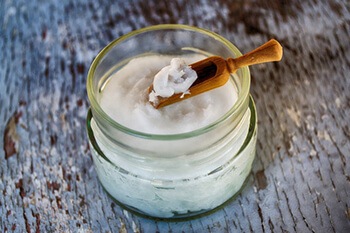
Coconut oil has antifungal properties and may be used to treat an oral yeast infection. In one study, coconut oil was used to effectively treat oral thrush in rats that were resistant to drugs.
To use coconut oil to treat oral thrush, place one tablespoon of coconut oil in your mouth and swish it for one to two minutes like you would with a mouthwash, then spit the oil out. After swishing the oil, try to avoid eating or drinking for thirty minutes, which will give it time to take effect.
Salt Water
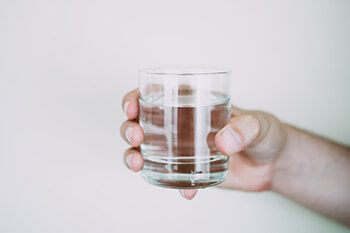
Salt water can be used to treat an oral candida infection. Salt kills yeast, which makes it a good home remedy for oral thrush. Salt water also has antiseptic, cleansing, and soothing properties, which may help with the symptoms of oral thrush.
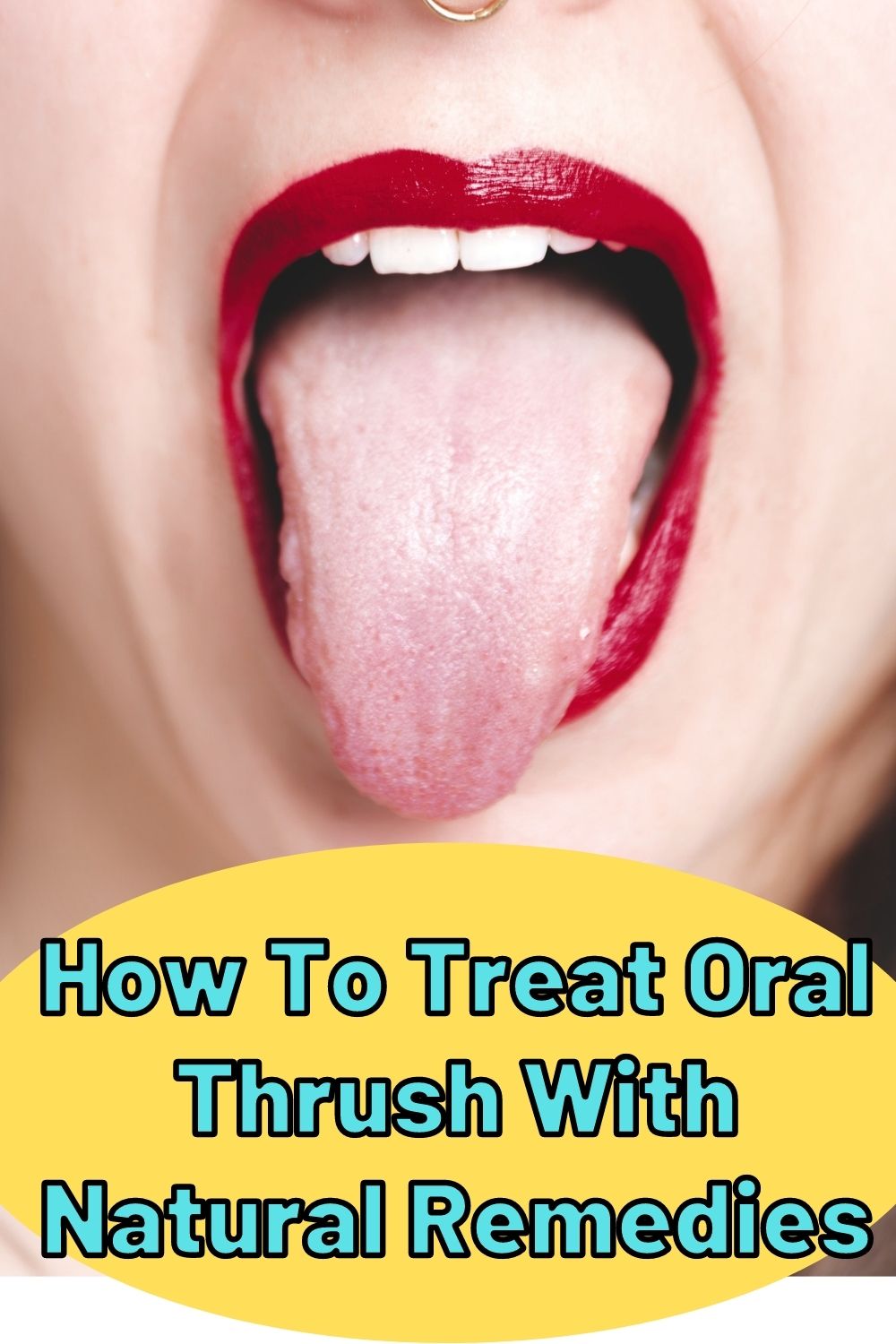
Apple Cider Vinegar
Apple cider vinegar is a natural antifungal and antibacterial that can help with treating oral thrush. Studies have found that apple cider vinegar can help with candida overgrowth and even prevent oral thrush.
There are a number of ways you can use apple cider vinegar as an oral thrush remedy. One option is to take it undiluted. To do this, swish a tablespoon in your mouth like a mouthwash for thirty seconds to a minute, spitting it out afterward. Alternatively, you can take it as a health food shot. Unfortunately, apple cider vinegar doesn't have the most pleasant taste - you'll probably want to add a drop of honey to make it more bearable.
If you really don't enjoy the taste, you can go one step further and dilute your apple cider vinegar slightly. Mix half a cup of the vinegar with a cup of water and swish in your mouth, spitting out each time, as you would with a salt water rinse. Repeat until the water is gone.
If you're looking to get double the benefits from a remedy, try combining apple cider vinegar with coconut oil to obtain the best properties from both. As coconut oil is a good carrier and boosts hygiene, it makes for an effective way to dilute apple cider vinegar without getting rid of its benefits.
Oregano Oil
Oregano oil is a potent antimicrobial and antifungal, and research shows that using this oil can help stop the growth of candida yeast.
When using oregano oil as an oral thrush treatment, make sure to dilute the oil first, either in water or (more preferably) in a carrier oil such as coconut. Oregano oil is too potent to use on its own, and could irritate your mouth.
Place two drops of oregano oil in a cup of water and swish in your mouth. Repeat this until the glass of water is empty. If you want to use coconut oil instead, simply add the same amount of coconut oil to the glass in place of water.
Tea Tree Oil
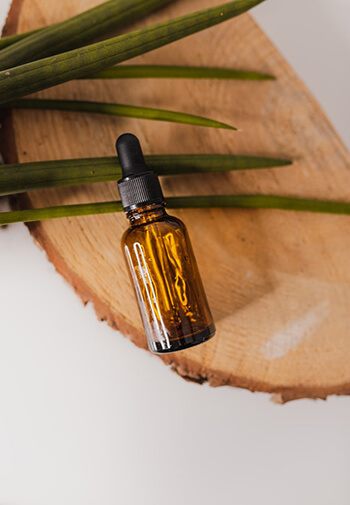
Tea tree oil is a natural antiseptic that has also shown potential in treating oral thrush. Being a natural anti-inflammatory, tea tree oil should help especially with the symptoms of oral thrush.
To use tea tree oil to treat oral thrush, place two drops in a cup of water and swish in your mouth, repeating until the glass of water is gone.
Baking Soda
Baking soda is particularly helpful in treating oral thrush in people with dentures. It helps kill the fungus and maintain good ph levels inside the mouth. Studies have found that baking soda is effective at removing candida albicans from dentures, and it's thought that this may also work in the mouth itself.
To use baking soda as a thrush treatment, place half a teaspoon in a glass of water and swish like a mouthwash. You can also add your dentures to the mixture and allow them to sit for up to 10 minutes at a time. This should help kill off any fungus on the dentures.
Garlic
The natural antifungal properties of garlic can help kill candida infections in the mouth. A small trial found that applying garlic paste for fourteen days helped treat thrush. It's thought that allicin, found in garlic, is responsible for this reaction. Allicin is an antifungal that's found in both garlic and onion.
To use garlic to treat oral thrush, chew on one garlic clove up to twice a day until the symptoms are gone. You might want to follow this one up with a breath freshener!
Aloe Vera
Aloe vera is a natural antifungal, and when applied directly to the oral thrush, it should help treat the problem. It's best to get aloe gel straight from the plant, as this is edible, unlike lotions and gels from the supermarket, which often contain chemicals that are dangerous to consume. Apply the gel lightly to the thrush twice a day.
Lemon Juice
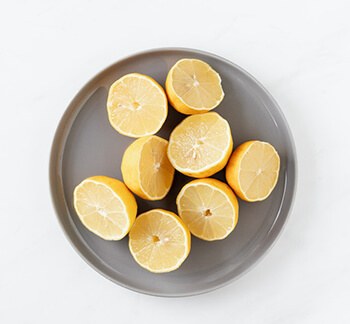
Lemon juice is antiseptic and antifungal. It's one of the most convenient oral thrush remedies on this list, as lemons are cheap and you're likely to already have them in your cupboard. Some studies have shown that lemon juice is an effective treatment for thrush in patients with HIV.
To use lemon juice as a remedy, just squeeze a lemon into half a glass of water. Swish the juice in your mouth like mouthwash several times throughout the day. If you enjoy a refreshing glass of lemon water, you might prefer to drink this instead - just make sure you swish before you swallow.
Turmeric
Studies have found the curcumin in turmeric can also help treat oral thrush. Curcumin has natural anti-inflammatory and antifungal abilities that may help the symptoms of thrush.
To use turmeric to help manage oral thrush, combine it with coconut oil and swish in your mouth for up to a minute, then spit it out. For an even more effective turmeric remedu, try combining coconut milk, turmeric, ginger, and cinnamon and swishing this beverage, which should help treat the thrush and soothe your mouth. Don't add sugar to this recipe, as sugar feeds yeast, and could make the infection worse.
Lifestyle Changes
Along with the natural remedies listed in this article, some lifestyle changes may also help prevent and treat oral thrush.
Proper oral hygiene is the most important lifestyle habit to adopt, if you don't already. Make sure to brush and floss your teeth twice a day, using a toothpaste that contains fluoride, and visit your oral hygienist twice a year. You can also use a mouth rinse in between brushes to maintain good hygiene.
People with a weakened immune system are more likely to contract oral thrush. If your immune system is weakened, you're best seeking professional medical advice to see what steps you can take to prevent infection.
Adding good bacteria into your body with probiotics may also help treat thrush. Foods such as kimchi, yogurt, sauerkraut, and kombucha are all high in probiotics. Oral probiotics are available at health food shops and specialized stores and can also help promote good bacteria. When you're trying to get rid of oral thrush, avoid foods and drinks high in sugar, as this can encourage the yeast to spread in your mouth.
In Summary
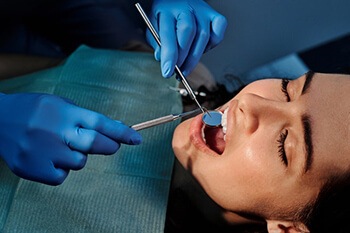
While there are many remedies for oral thrush, it's important to be consistent and not mix and match. If you're combining coconut oil with drops, repeat this until you see symptoms subside.
If your symptoms don't go away, you may need to contact your medical provider. Your doctor may decide to prescribe an antifungal cream, oral medications, or antifungal medications to help treat your candida infection.
When the infection is gone, you need to make sure it stays away. It's a good idea to replace all your toothbrushes so that you don't reinfect your mouth while it's still healing.

